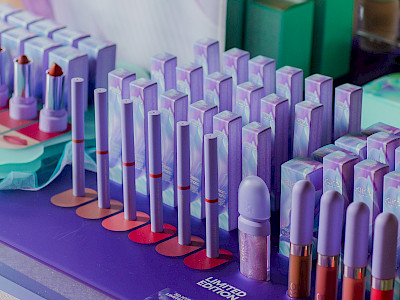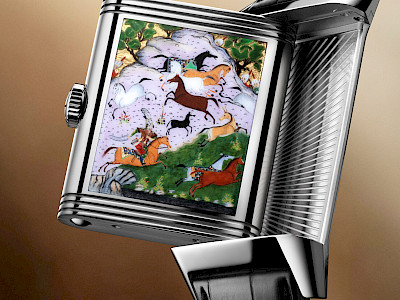
Sabina Novruzova is a startup and innovation ecosystem builder at Europe’s largest start-up
accelerator, Startupbootcamp, and a startup mentor on her own. Based in Amsterdam, she is also involved in her own projects related to women in technology and Web3. Sabina is an accomplished public speaker and influencer, having spoken at numerous Web3 and technology conferences such as NFT.NYC and NFT. London, and even being featured on Times Square. She has also participated in TEDxTalent Night in Amsterdam and conducted workshops on AI and Web3 for women and beyond.
Can you tell us about your childhood?
I was born and raised in Baku, and I was a typical nerdy kid who loved reading, playing video
games, and watching TV. One of the most important milestones in my life was when my brother and I got our first computer, I was 9 or 10 at the time. This experience really influenced my career path and my desire to help others. I always wanted a job where I could work on various tasks, including technology, and interaction with people. I consider myself lucky to be in a position that aligns with my interests.
Where did you receive your education?
I always knew that I want to go to ADA University. That was my dream. I set the goal and I worked very hard for twoyears to achieve it. I graduated from ADA University twice: bachelor and MBA. Our Economics group was the first of its kind, so you can say, experimental, which was super cool, and the professors were also interested in making sure that what they do is working and it was working on us. Although I knew economics wasn’t my calling, I value the experience because it taught me a lot about working with data and people, how to study and get what I want. University was great for networking and being around ambitious, cool people. When I was 17, my friends and I started our entrepreneurial journey. I was the graphic designer on our team, and we worked on various freelance projects with ADA University and some other companies, small and even big. At 19, I came up with my first-ever start-up idea called Run2Help. It was a mobile app that converted steps to money that could be donated to a charity of your choice. My two friends and I won second startplace in start-up competition at ADA University and received a grant from the ICT Fund of Azerbaijan.

What does it mean to be a futurist and what skills are needed to be one?
Being a futurist is more of a state of mind rather than a specific profession. It’s not about having certain skills or knowledge. Instead, it’s about having the right mindset. As a futurist, you need to be aware of both technological and social shifts. It's not just about keeping up with trends like Web3, metaverse, NFTs, blockchain, and AI. It’s also about understanding how shifts are
affecting society and the economy. You should be in touch with these changes and be able to anticipate how they will impact the future of your country and the world. As a futurist, you are always looking forward to changes.
What is the Metaverse, and will it serve any real use cases?
Before we talk about the Metaverse, we need to understand that it belongs to the concept of Web3 which is the next wave or iteration of the Internet. What we have right now, such as Instagram, Google, YouTube, and Facebook, is all part of Web Two, and what we had in the past during the early days of the Internet is Web One. Web3 will not be entirely different from what we have now, there will still be Instagram and Facebook, etc., but some parts will evolve. Its concept is based on blockchain, which is a more secure way to store things online. It includes everything from cryptocurrency, blockchain, Metaverse, and NFTs but doesn't include AI. Moving on to the Metaverse, we need to establish that it is a virtual reality. The most popular use case and easiest example to understand is gaming. You can imagine using a virtual reality helmet to play a game or even ride virtually. These virtual reality helmets are available in different malls, even in Baku.

What is your personal experience of using the possibilities of the Metaverse?
Personally, I don't see a lot of value in building a virtual house and living a virtual life, or even having any fun in it. However, I do love gaming, having played a lot of video games when I was a kid. I find the Metaverse incredibly useful for education. I got into the whole Metaverse thing about 2,5-3 years ago when I was living in Istanbul. It was the middle of the pandemic, and I wanted to work and help different start-ups grow. I started working with an American startup that had a Metaverse, which was an educational virtual reality for children with autism, ADHD, and dyslexia. Imagine putting a helmet on a child with autism for 10 minutes and immersing them in a very fun, cartoon environment featuring their favorite characters. This technology could be adapted for use in special education for children with special needs. Can you imagine the joy they would feel, being fully immersed in their favorite cartoon world? This technology could be truly life-changing for those children.
Will the Metaverse influence sustainability?
There is a potential for the Metaverse to influence sustainability by becoming more efficient and sustainable. To achieve this, we need to ensure that all technological and other resources are used efficiently to reduce their impact on the environment. This includes the energy spent on supporting and generating everything built on blockchain and the internet. However, due to the
increasing popularity of the Metaverse and Web3, there are efforts to make energy usage more effective. Even if the Metaverse is as sustainable as possible, the only question remains whether people will replace real-life consumption with virtual experiences?

What role can NFTs and AI play in the fashion and luxury goods industry, and what challenges might they face?
This is one of my favorite case studies in the current Web3 NFT metaverse hype. I love fashion and I believe many Nargis Magazine readers do too. Digital fashion is virtual clothing that you can put on your avatar, whether in a virtual reality game or social network. Digital fashion was initially envisioned as a way to display virtual outfits that could be viewed by people wearing virtual reality glasses, but we are not there yet. Currently, you can try on virtual clothes with filters or mirrors. One of my favorite digital fashion cases is Coach, where they created a mirror on the street in New York, and everyone who passed by would see Coach bag on themselves in the mirror. It is a cool marketing trick for customers to see what the product would look like on them. And if they like it, they can purchase the bag. When you buy a virtual pair of Nike sneakers, you also receive a physical pair, allowing you to have the shoes both digitally and physically. Now, the question arises: why would you need to have it digitally? You can put it on your avatar, but many of us probably do not really use avatars yet because the Metaverse is still relatively new. However, this digital pair also serves as a key, unlocking unique experiences for you, such as getting special discounts, loyalty cards, and points. Currently, a lot of AI tools are focusing on generating realistic images, which is known as generative AI. Programs like Midjourney are very popular right now because they can create highly realistic pictures.

What advice would you give to someone interested in getting involved in the intersection of NFTs and AI? What resources do you recommend for people who are working to design and build more equitable and ethical futures?
Around 3-5 years ago, and even now, it has become popular to be a founder, to quit your nine-to-five job, and launch your own business. However, not everyone who takes this path ends up finding fulfilment. It is important to consider your personality and goals before deciding whether or not to start your own business. You might find that you would prefer to work for a good company or become an influencer, sharing your expertise rather than building a tech start-up. These are the questions to be answered before getting involved in this field. Maybe you just want to learn about it as a futurist? Or you want to learn about the future of technology and society to help your children pick careers? Or perhaps you simply want to work in this industry, or, finally, start your own business in this space. These days, after all the hype is gone, people are focusing more and more on utility of Web3, NFT, AI, metaverse, that is beyond just being a fun tech thing. Instead, it’s like a key to a whole different world or community. In any case, if you want to stay up to date, my advice would be to join and stay active in local and global communities - business, tech, or any similar ones. That’s how you can stay alert to everything the
future holds.



